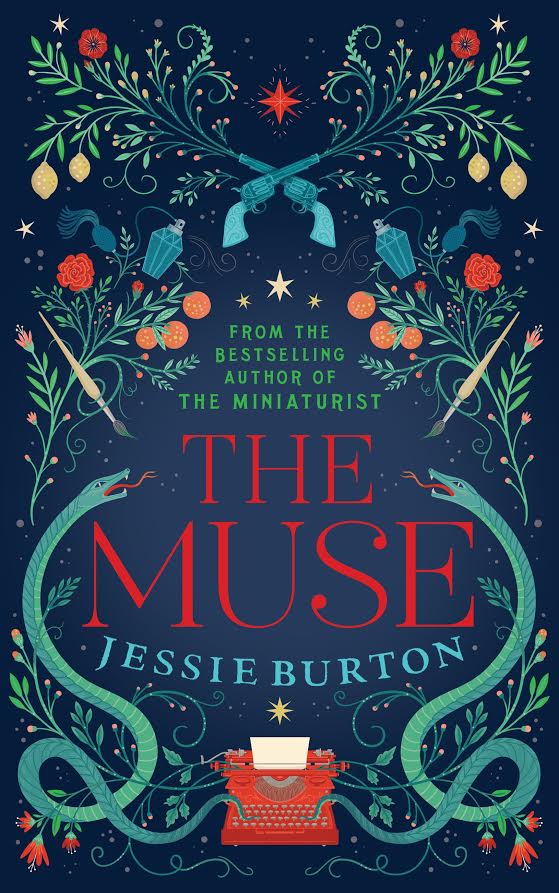Suzanne Goodman reviews The Muse By Jessie Burton
Picador Paperback, £7.99
 It’s 1967, and London is swingin’, as they say. Yet five years after leaving her native Caribbean to pursue her writing dreams, Odelle Bastien is working in a shoe shop – in an obvious metaphor, kneeling at the feet of white women who possess none of her talent – and sharing a flat with fellow immigrant, Cynthia.
It’s 1967, and London is swingin’, as they say. Yet five years after leaving her native Caribbean to pursue her writing dreams, Odelle Bastien is working in a shoe shop – in an obvious metaphor, kneeling at the feet of white women who possess none of her talent – and sharing a flat with fellow immigrant, Cynthia.
But for Odelle, life is about to change. She’s finally landed an office job, a secretarial post at the Skelton Gallery in London, where enigmatic art dealer Marjorie Quick takes her under her wing.
It’s a step-up for Odelle, a better paid job, which is just as well because Cynthia has married, and Odelle is now living alone. It’s at Cynthia’s wedding reception she meets Lawrie Scott, “the white one, handsome, skinny” who shows her a painting he’s inherited from his mother. It depicts a woman holding a severed head, and a lion – what could be the story behind it?
A few weeks later, Lawrie turns up at The Skelton with his painting, ostensibly to find out about it from the art experts there, but in reality to ask Odelle out.
Head honcho at The Skelton, Reede, soon establishes the painting is an unknown masterpiece by Spanish artists Isaac Robles, who disappeared during the Civil War. He’s highly excited – unlike Quick. She, Odelle, notes, is upset by the painting.
And so begins the unravelling of a mystery as the story takes us back to 1936 and the arrival of Olive Schloss and her parents in rural Spain. Teresa Robles becomes their maid while her brother, Isaac, is commissioned by Olive’s mother to paint the Schloss women as a present for her art dealer husband.
The story then toggles between 1936 and 1967. As the plot develops, relationships are explored in both eras, none more so than the one between Odelle and Quick, who gives our aspiring writer her first break.
The truth will out – as it usually does – and it does in a breath-taking denouement that leaves Odelle – and the reader – stunned.
After the success of The Miniaturist, Jess Burton’s debut Sunday Times best-seller, this second novel has a lot to live up to, and in many ways it fulfills it’s brief.
The plot is truly gripping and unfolds at just the right pace, keeping readers guessing as to the true story behind the painting. Burton is clever at clueing, so the reader never feels left behind, but is never quite sure of outcomes, either.
The prose is wonderful. Burton’s descriptive writing conjures up a sense of place, time and atmosphere in just a few words. How evocative is this, for example? “Lawrie had lit candles, wedging them into empty wine bottles and a burnished, sinuous candelabra that had more than a hint of the murder weapon about it.” Without need for more words, we know it’s the 60s, Lawrie is more middle-class than student and Odelle feels slightly ill-at-ease in his home.
But for me, The Muse lacked the magic of The Miniaturists – and not just because there is no hint of the supernatural here.
Inevitably, as a writer Odelle is an observer of events. But she is also an observer of her own relationships. As a black woman going out with a white man she encounters prejudice, but she never fully shares her feelings about this. Nor, for all her interest in Quick and the art dealer’s relationship with the painting, does she seem to care much for the woman who has given her the chance to finally fulfil her writing ambitions.
Odelle is not a dislikeable person, but she is constantly on her guard – fair enough in the context of 1960s London, where immigrants were often looked down on. But come on, give us some passion!
Instead it’s left to the 1936 story to provide that passion as Olive, Teresa and Isaac become embroiled in a deception that will shake their world as much if not more than the events going on around them.
Who is The Muse of the story? Is it Quick? Is it Olive? Burton cleverly leaves the reader to decide for themselves.
Though Odelle was a little cool for my taste, it would be unfair to say The Muse left me cold.
Well-plotted and well-paced, with a massive art mystery at its heart, the book is more than worth the read. But I still preferred The Miniaturist.





